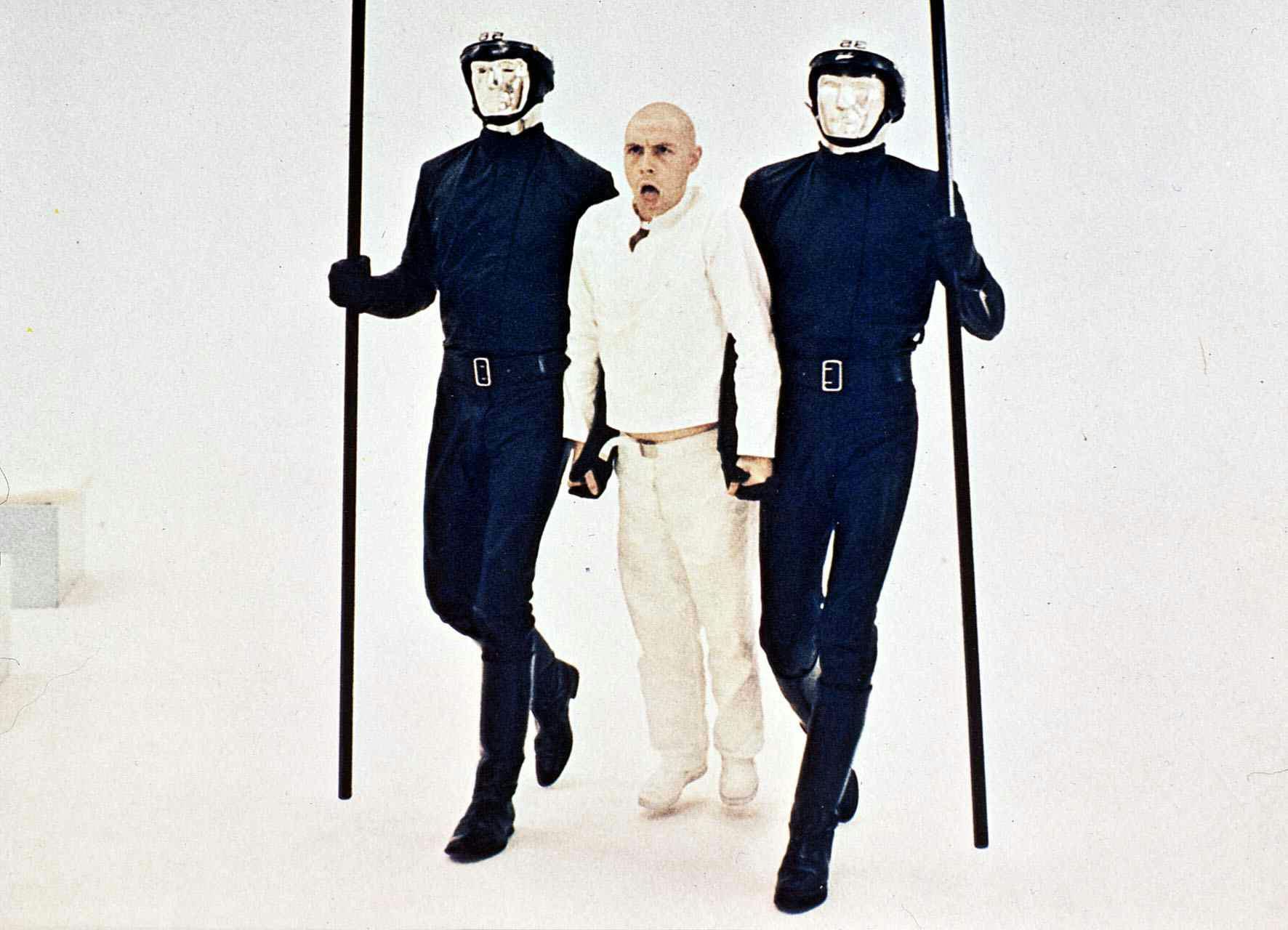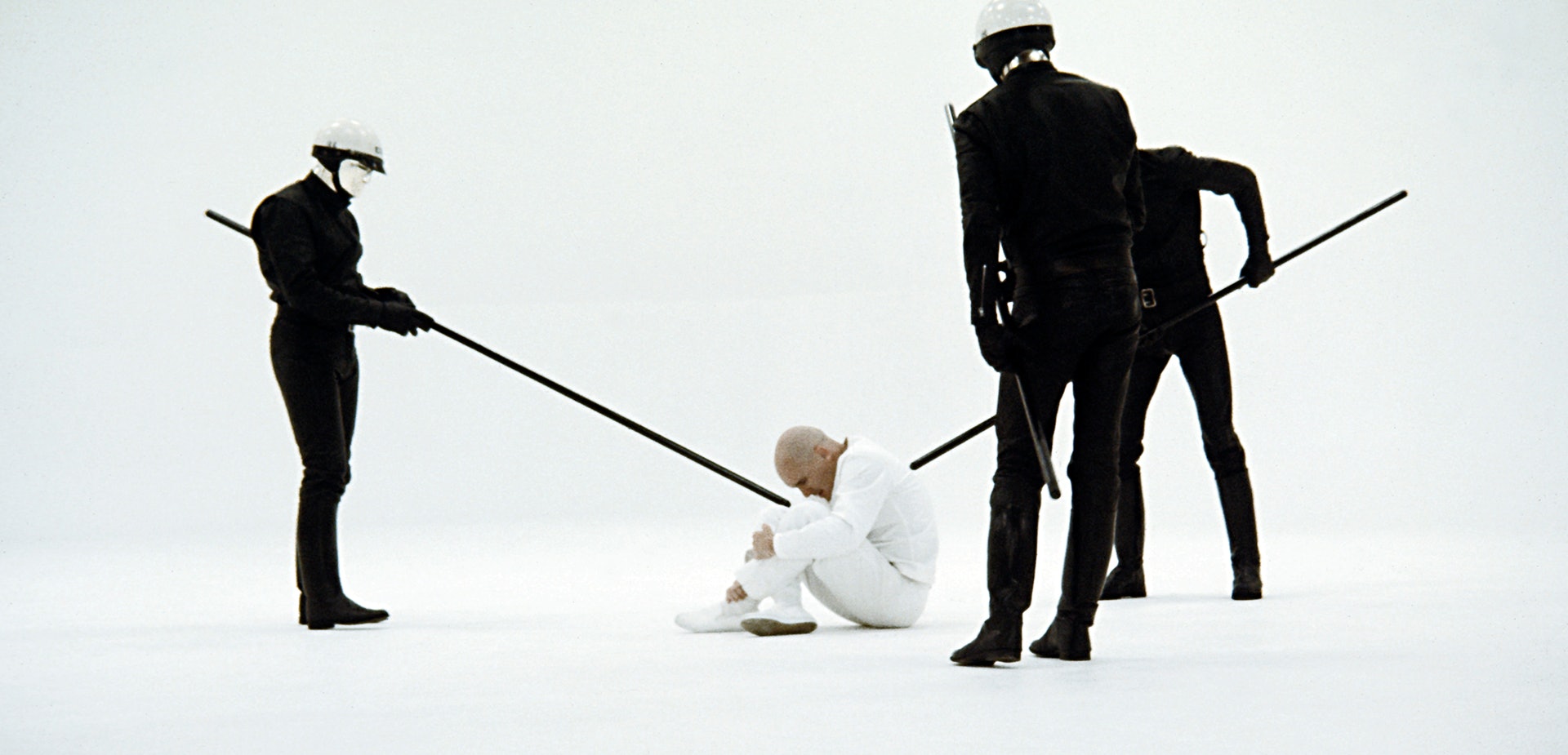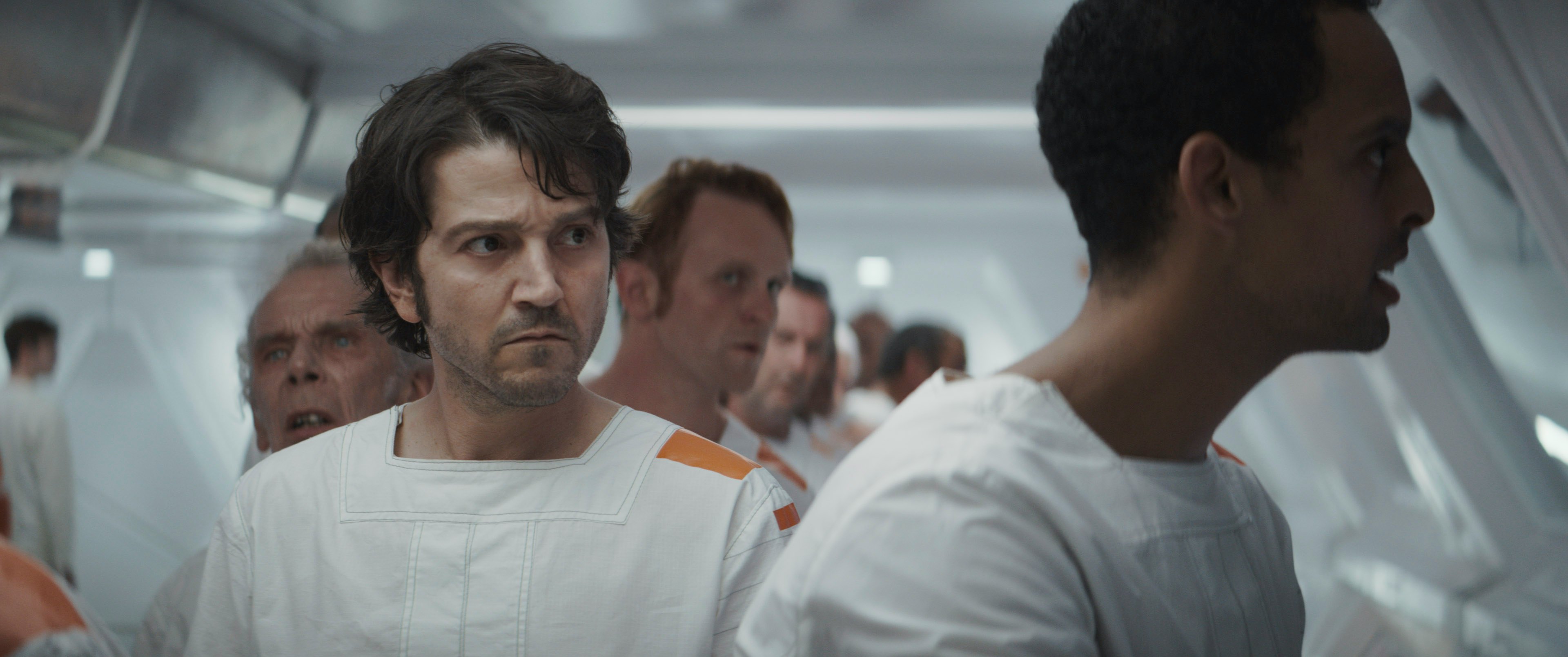
In 1971, the very first feature-length film from a young director named George Lucas hit theaters. It was not an instant success, but it marked the beginning of the career of a cinematic visionary who would go on to completely change the nature of how we talk about science fiction movies. And now, thanks to Star Wars: Andor, it feels like the first George Lucas sci-fi movie ever — THX 1138 — is a part of Star Wars canon. Sort of.
Spoilers ahead for Andor through episode 9.
How Andor references THX 1138, visually
For hardcore George Lucas fans, the first glimpse of Cassian’s prison outfit in Andor Episode 8 was a clear reference to the world of THX 1138. Even the specialized Imperial guards on Narkina 5 in Andor bear more than just a passing resemblance to the robots police in THX’s dystopian future.


In this 1971 film, Lucas imagined a bleak future in which free will had been utterly taken away from every single human. Based on his own short film “THX 1138: 4EB,” the feature version was funded by none other than Francis Ford Coppola. It’s worth noting that THX 1138 is only a Lucasfilm production retroactively. After the film lost money, Lucas claimed that he and Coppola “had to go our separate ways.” After that, George Lucas created Lucasfilm and directed American Graffiti (1973) and then, of course, the first Star Wars.
Although it’s hard to claim THX 1138 is the best George Lucas film ever, it is one of the best sci-fi dystopias ever. Lucas focuses on convincing us of an Orwellian future through minimalist sets and brilliantly manipulative auditory cues. Composer Lalo Schifrin, famous for creating the theme song for Mission: Impossible, was challenged by Lucas to create the most boring “soporific music” that would make citizens of this future world “slow-witted.” In essence, Lucas made one of the greatest TV and film composers of that time write music that was intentionally boring. Along with the strikingly stark visuals, this small decision made this world feel real.
How Andor references the themes of THX 1138
Obviously, Star Wars canon hasn’t literally transported its characters to a faux-future version of a dystopia on Earth. But thematically, the prison on Narkina 5 does emulate the basic themes of THX 1138 in one very specific way. The movie’s plot centers on the idea that the main character THX 1138 (Robert Duvall) accidentally figures out that free will has been taken away from everyone.
In Andor, the prisoners on Narkina 5 are given the illusion of pseudo-free will because there’s a promise that they’ll all be released once they work off their time. However, as Episode 9 revealed, this is a lie. Nobody is getting released, and the Empire will continue to manipulate the workers on Narkina 5 ceaselessly. Like in THX 1138, if people figure out the truth then the system has no real power over them and it falls apart.

In 1971, George Lucas was pushing the theme of societal rebellion against a police state into a science fiction setting. In the original Star Wars, he took some of those THX 1138 themes and jammed them into a fairy tale structure.
Andor brings these two approaches together as one. We’re still in the space fantasy context of the Star Wars universe, but with the harsh reality and smart social commentary of THX 1138. It’s a collision of styles and sensibilities that would have seemed incongruous back in the 1970s but now works brilliantly.
It’s always been fashionable to say George Lucas was ahead of his time in 1977, but Andor’s tribute to THX 1138 proves he was ahead of his time in 1971, too.
Andor is streaming now on Disney+.







